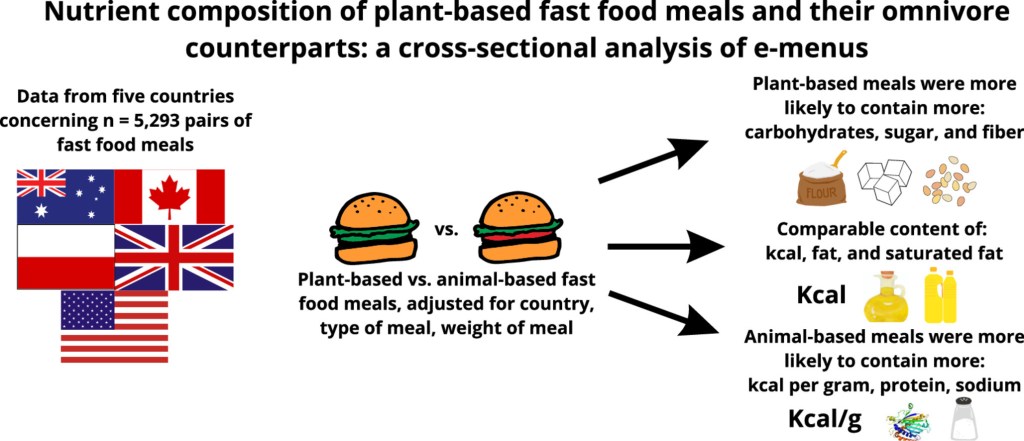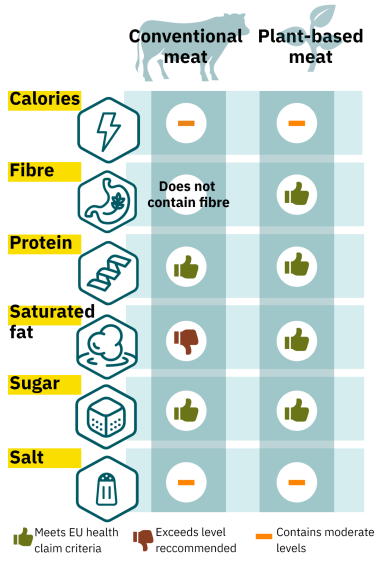A new study compares the nutritional content of plant-based fast food meals with their animal counterparts.
The study was published by a team of dietary researchers from the Department of the Treatment of Obesity and Metabolic Disorders, and of Clinical Dietetics, Poznań University of Medical Sciences, Poland.
Among the key findings were that the plant-based fast food meals analyzed were more likely to contain more carbohydrates, sugar, and fiber while animal based meals showed more protein and sodium. Caloric content was the same.

The aim of the research – which analyzed the e-menus from fifty fast food chains across Australia, Canada, Poland, the UK, and the US – was to compare the nutrient composition of plant-based fast food meals with their animal-based equivalents. The fast food chains in Australia that were analyzed included included Subway, Domino’s, KFC, Hungry Jack’s, and Nando’s.
The team gathered data on meal type, weight, calories, macronutrients, sodium, and fiber, with plant-based and meat-based meals being matched by same meal type, origin country and chain, and with a weight difference of less than 10%.

However, according to think tank Food Frontier — most of the non-meat meals analysed in the study didn’t contain plant-based meats. Additionally, at the time of the assessment, half of the Australian outlets had no plant-based meat meals on offer, and those that did had very limited options.
Food Frontier said the plant-based (both vegetarian or vegan in the case of this study) options analysed were commonly substituting a high fat dairy item like cheese, or a high carb option like croutons for conventional animal meat, leading to the vegan and vegetarian meals lacking in protein and increasing in carbs or fat.
The study found that plant-based meals had less sodium and more fibre. However, Food Frontier said it was unsurprising they didn’t score lower in calories—fast food prioritises speed and taste, often involving frying and energy-dense sauces.
Research by The George Institute for Global Health, as well as Food Frontier, has found that plant-based meats, on average, are nutritionally superior or comparable to similarly processed conventional meat products across most categories, such as sausages, crumbed chicken, bacon and burgers. And they have higher fibre content and lower saturated fats. They were on average 50% lower in saturated fat and 20% lower in sodium overall and had 200% more fibre.

Food Frontier also noted that numerous studies show that high conventional red meat consumption, particularly processed meats, is linked to the development of cancers, cardiovascular diseases and type 2 diabetes, which the study does not mention or assess.
What’s more, a recent report from The Good Food Institute Europe suggests that exchanging conventional meat for plant-based meat could reduce the risk of heart disease and bowel cancer, improve overall gut health, and help maintain a healthy weight.
The report showed that plant-based meat in Europe was a good fibre source and usually low in saturated fat, compared to low fibre and higher saturated fat in conventional meat, though both were high protein and low sugar.
To stay up-to-date on the latest industry headlines, sign up to Future Alternative’s enewsletter.
Posted on:


